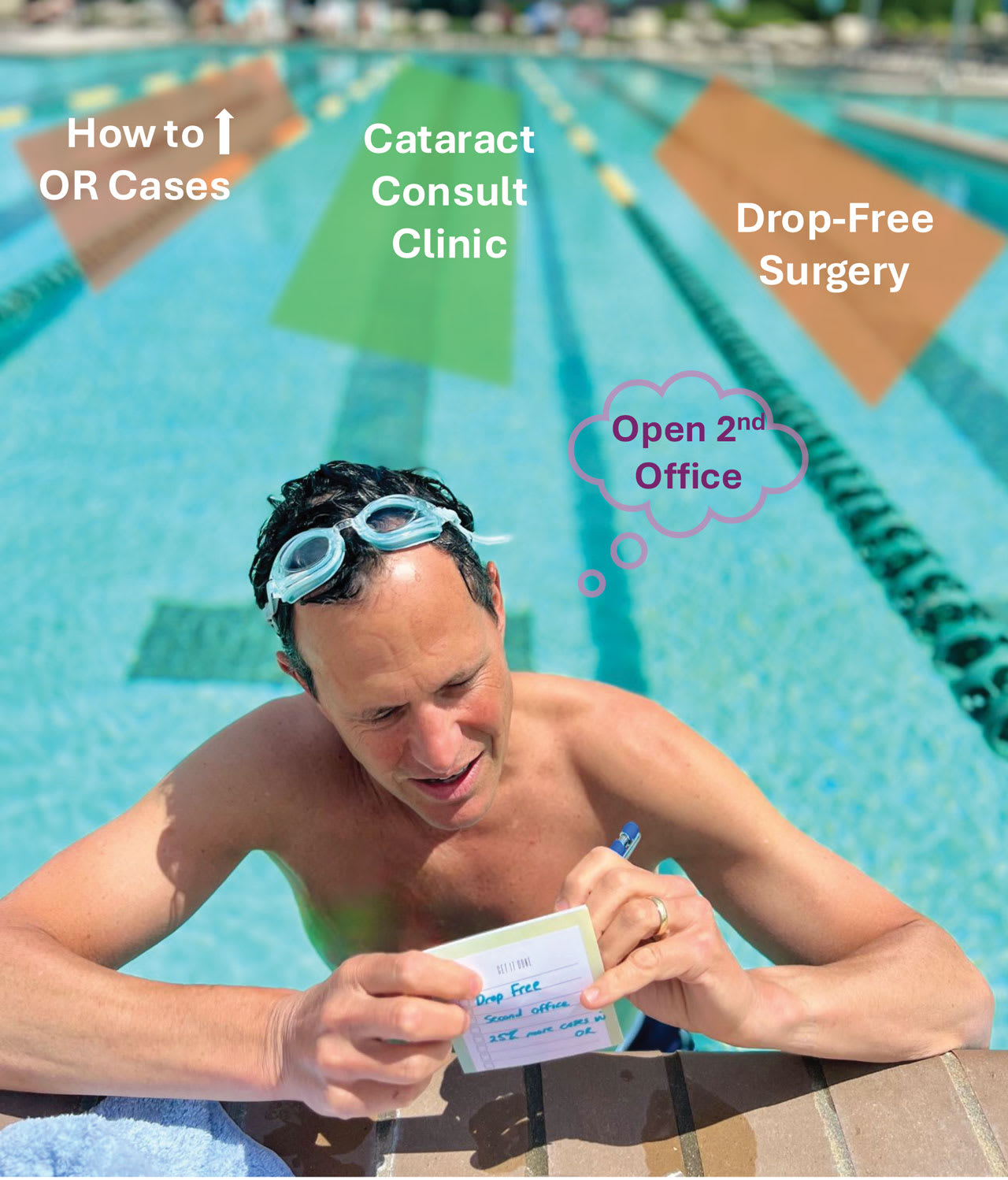Hopping into the lap lane to swim, I knew I would stare at the black stripe on the concrete for the next half hour. It was here that I realized how boring I was because, after a minute or two, I had nothing else to say to myself. Then, my mind would wonder about ways my office could work better, with outside-the-box ideas that would allow me to hyperfocus on solutions. Novel solutions. The ideas sometimes were so amazing that I had to get out of the pool, dry off, and put them in my phone so I would not forget them.
Eventually, this time spent swimming became my “creative process.” I would put pen and paper in a Ziplock bag on the edge of the pool to keep notes along the way.

Current Constraints
The application of artificial intelligence (AI) reminds me of a great quote: “Life can only be understood backward, but it must be lived forward” (Soren Kierkegaard). AI and large language models (LLMs) mine available content, ideas, solutions, etc, and answer questions or interpret data. However, they can only look at what has already been thought of or said, or what has already happened. So, over time, AI will create regression to the mean because of a glaring blind spot: lack of creativity.
It will produce nothing novel; as a result, we can expect AI to often miss the essence of your practice and lack the gut instinct a physician carries from years of working their clinic. So, AI or not, you are still on the hook to figure out novel solutions and new ideas. AI only considers possibilities that already exist.
Reset the Mindset
At medical meetings, presenters often proclaim the need to brainstorm for the next big idea that will enable practices to reinvent themselves. Attendees come away with a list that mostly gets stuck in a desk drawer. That’s because forcing creativity leads to superficial ideas supported by group thinking, and thus doesn’t result in meaningful change. Instead, change the way you think about work. Foster a culture that insists on creativity.
Paths to Possibilities
We are all too busy to think. We move from patient to patient each day, putting out fires as they pop up, then heading home to solve the “what’s for dinner” question every night. Life drags us along, and there is never enough time to think about what or how we do our work—unless you decide it is important enough to become intentional about how you work. Here are some practical ways to make that happen.
Carve out time for an appointment with yourself or your team on a weekly or monthly basis—not just once or twice a year.
Solicit ideas from all employees up and down your organizational chart. Allowing for honest feedback and bringing the problem to the staff performing the actual tasks will open opportunities to find novel solutions that work.
Consider how someone else might approach the issue. We are all creatures of habit and naturally stay in our lane, but instead, allow your thoughts to wander to other perspectives, such as how another successful practice would think about this or how your college economics professor would create efficiency, or even what your mom would say.
These suggestions may seem simple, or even silly, but they will generate ideas that work way better than your management team creating protocols and templates, or even the best AI platform. Surprise yourself with your process.
Real-Life Results
I am usually a sound sleeper, but three of my best ideas came to me at 4 a.m., as I lay wide-awake in bed. There were no distractions, no place to go, and nobody to talk to. This was an unusual moment in which I could only listen to the voice inside my head. I realized moments like this are like a superpower.
Craving more time to think, other than during sleepless nights, I found swimming, running, and long flights were opportunities to leverage this newly discovered superpower. This column was created from notes I took on my phone during a couple of long runs and then drafted during a 4-hour flight from Maryland to Texas. During another long run, I figured out how to go drop-free in cataract surgery after getting frustrated with patient costs. I opened new office locations because of ideas that came to me during a long swim.
Antonio Damasio’s statement, “You will be much more in control if you realize how much you are not in control” resonates with physicians who are dedicating their time to providing the best care to their patients. Recognize the urgency of investing your time in ways that truly impact your future. OM
*No language models or AI were used to write this column. However, ChatGPT was used for the last sentence to help put an ! on the end of this column.









